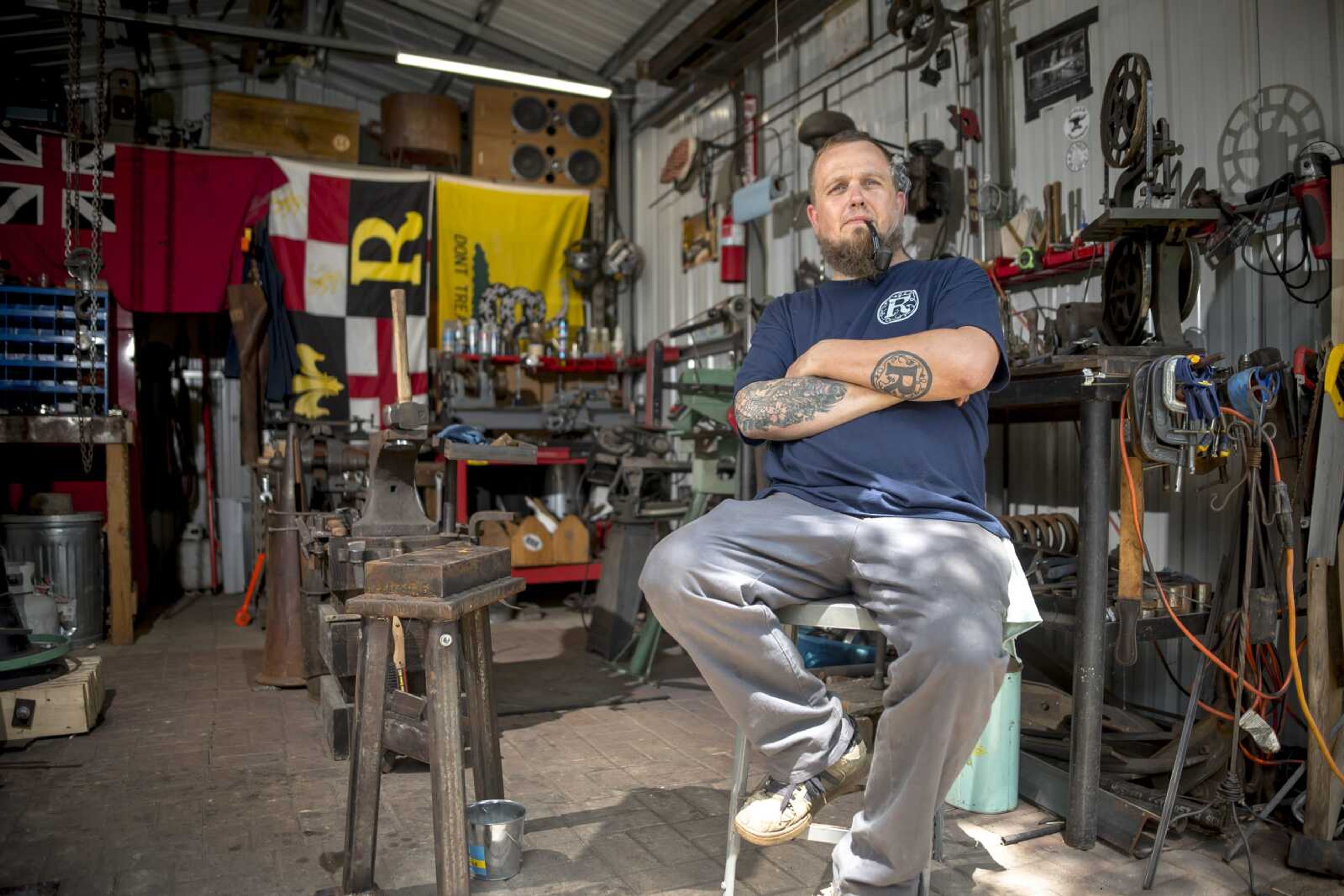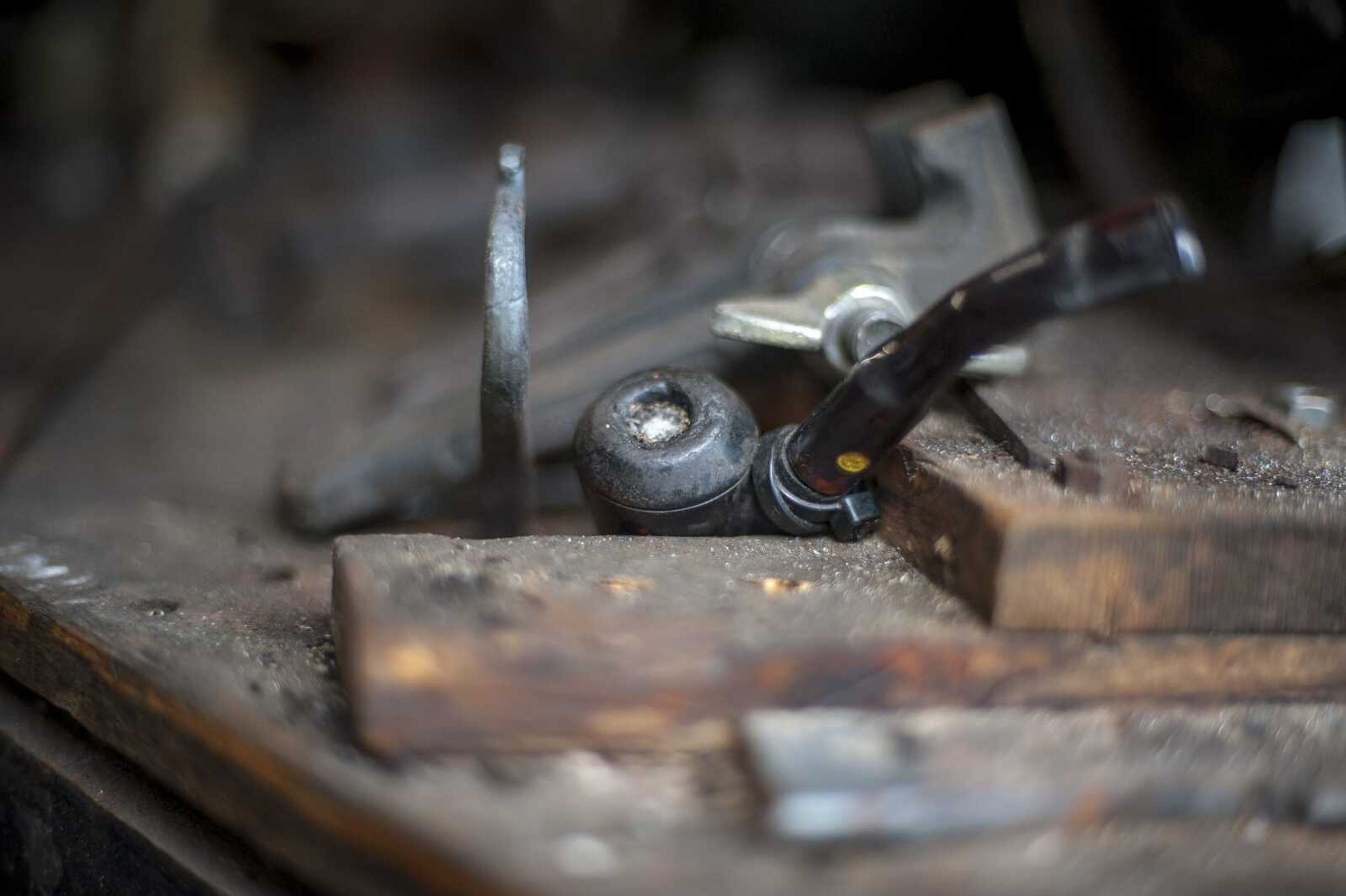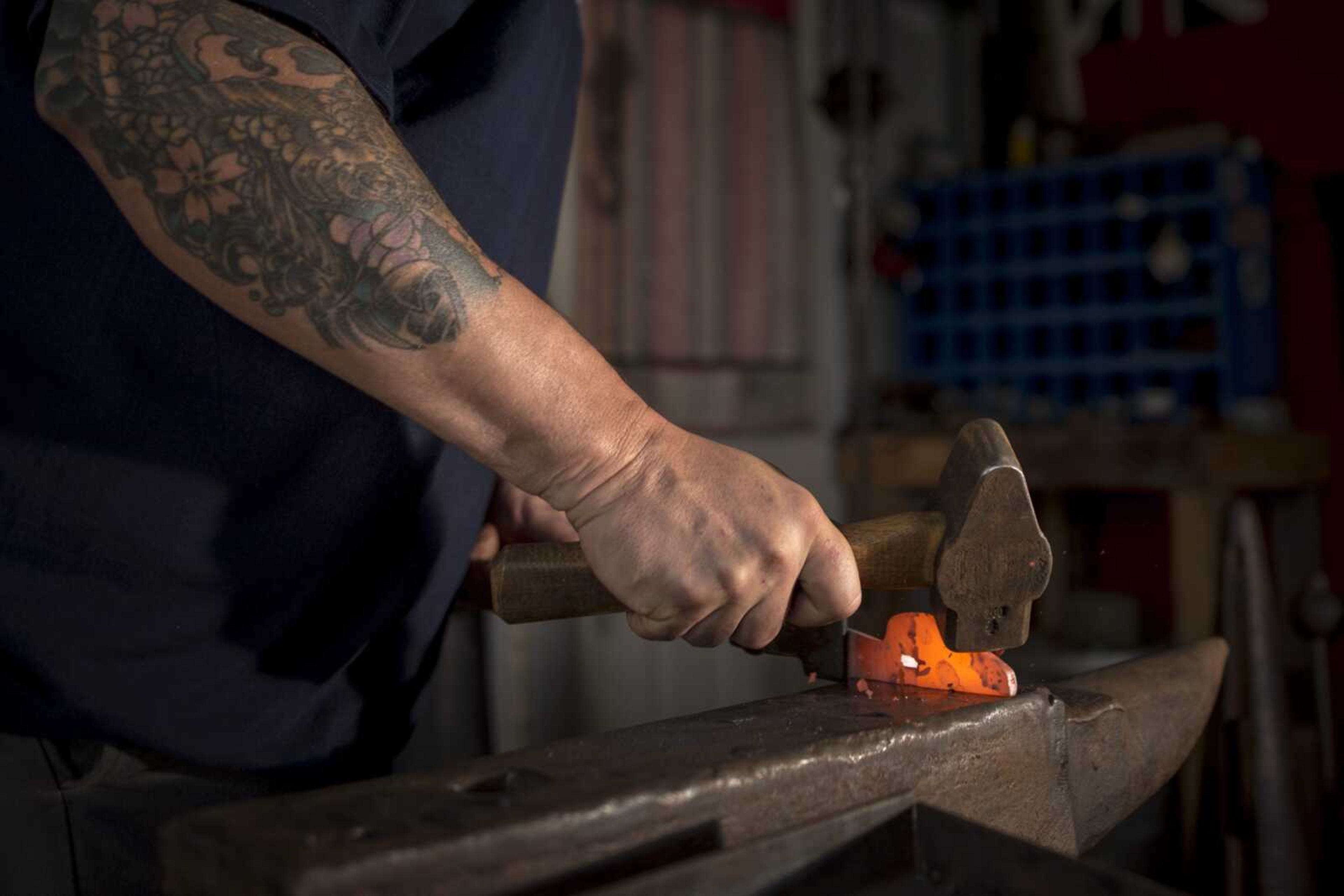Heavy metal man: Jackson's Beine finds his creative groove with shaping metal to the rhythm of rock
Lucas Beine keeps his hammer in time, once to the glowing-hot steel, then a rattle-tap on the anvil just beside it; over and over again until the glow begins to fade. "The thing is, you don't want to waste any blows," he says, thrusting the knife-to-be back into the furnace and wiping his brow with a tattooed forearm. "I'm not classically trained, so that's usually why I'm blasting away with the crazy music. It's just to keep me in rhythm."...
Lucas Beine keeps his hammer in time, once to the glowing-hot steel, then a rattle-tap on the anvil just beside it; over and over again until the glow begins to fade.
"The thing is, you don't want to waste any blows," he says, thrusting the knife-to-be back into the furnace and wiping his brow with a tattooed forearm. "I'm not classically trained, so that's usually why I'm blasting away with the crazy music. It's just to keep me in rhythm."
Today it is the Dropkick Murphys' "Loyal to No One," but Beine says anything high-bpm will do. The rhythm, he says, is almost as important as the heat when it comes to forming a respectably balanced blade.
"Otherwise it'd be like working out on a cold muscle," he said. "It just wouldn't be good."
Drawing the metal out evenly, he explains, is the key to achieving what's known in blade geometry as a distal taper.

"That's what makes it do this," he says, producing a long, antler-handled knife from a shelf and resting it level on his index finger. "And that's what people want when they talk about wanting a balanced knife."
Beine has worked with metal since he was 7 in his family's shop, and continued when his family bought Wagner machine shop in Jackson in the '90s, but that work had a more modern and practical focus, outfitting trucks with snow plows and such. He says he'd never thought much about traditional blacksmithing until, through the Boy Scouts, he began frequenting historical reenactment fairs.
"I worked with metal already, and I knew what blacksmithing was," he says with a shrug. "It's pretty much been all downhill from there."
Before long, he had built his own bellows and was performing demonstrations at fairs in full 1700s garb. He picked it up much the same way he learned how to skateboard as a kid, or how to code: curiosity, immersion with knowledgeable friends and a fair amount of trial-and-error.
"When you work with metals, you have to know the metal pretty well. I'm not a metallurgist by no means, but it's like [website] coding: I know enough to be super dangerous."

Beine now works as a mechanic in Benton, Missouri, during the day, but many of his evenings and weekends are spent in the shed he built himself between the chicken coops and the bench swing in his backyard, forging knives, game hooks, punches, and even pieces for antique firearms.
The work takes creativity and attention to detail, but Beine insists he's not an artist. Despite the tattoos and the pipe and the taste for IPAs, he insists he's not a hipster.
"I fit a lot of the plugs," he says with a laugh. "But I'm not. I just like what I like."
Connect with the Southeast Missourian Newsroom:
For corrections to this story or other insights for the editor, click here. To submit a letter to the editor, click here. To learn about the Southeast Missourian’s AI Policy, click here.









